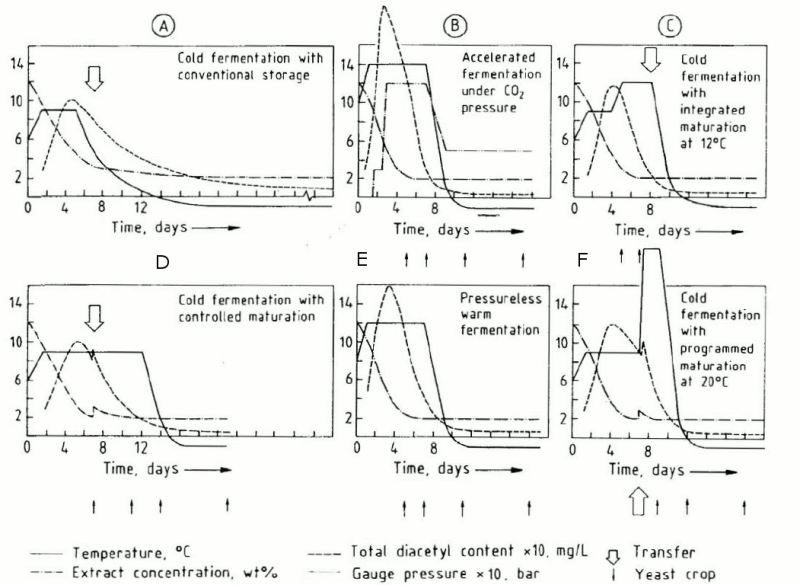I'm not saying much, certainty not as much as you.
There's a lot to be said. It's a deep subject that has occupied the minds of brewers and brewing scientists from the time of the 'invention' of lager beer.
I'm not even sure if we disagree?
I am sure if you came over and we sat down over a couple of beers we'd find plenty to agree upon though it's likely that we would disagree on some things as well. I certainly have no problem with that. Quite the contrary in fact. It's disagreements (and uncertainties) that cause scientists to undertake investigations.
If you really want to get historical none of this could be true. They didn't even have a thermometer. The process was formed around the environment and silly laws.
Not sure what you mean by this. The environment and silly laws conspired to cause Germany and Bohemia to produce the best beers in the world (British ale fans forgive me). Scientific analysis of why they were so good fueled not only better beer but seminal contributions to medicine and related fields. The first single cell culture was done on lager yeast. pH was discovered at the Carlsberg Lab etc.
And yes you did say I do it wrong in your first post of this thread.
I'd rather keep the discussion to the principles of brewing science but here's what you posted:
I don't want yeast when lagering. When I lager I'm done with them...
To which I replied:
Then don't have them. You won't get as good a beer but you must do as you choose
If I'd wanted to say you are doing it wrong that would have read "You are doing it wrong". I sometimes assume that people understand the duality of optimality and the criteria which define it but I guess many don't. What was intended here is that the criteria for optimality were those usually associated with the home brewing community. From the megabrewer bean counter perspective the quick program is obviously optimal (or as close to it as they can get at the moment). If it weren't they'd adapt to make it more so. My goal here isn't to offend but rather to inform.















































![Craft A Brew - Safale BE-256 Yeast - Fermentis - Belgian Ale Dry Yeast - For Belgian & Strong Ales - Ingredients for Home Brewing - Beer Making Supplies - [3 Pack]](https://m.media-amazon.com/images/I/51bcKEwQmWL._SL500_.jpg)










